Psychoeducation (also referred to as psychoeducational instruction) is a process of imparting knowledge about diseases, therapies, medications, communication styles, and related issues through participative lecture.
Teaching Residents
Simply put, the psychoeducational component of residential treatment at Sierra Tucson involves teaching residents (and family members) about the nature of the issues and disorders with which they or their loved one is struggling with.
At Sierra Tucson, we have a deep appreciation for the power of education. In the broader sense, a commitment to lifelong learning is key to continued growth and development — and in the specific case of residential treatment, education is a means of gaining a greater understanding of oneself and one’s challenges (and regaining control over one’s life).
Psychoeducation is consistent with the disease model of addiction and addiction treatment. For example, a resident with diabetes may need insulin to stay alive — but that resident also needs to understand the nature of his/her disease in order to effectively manage the disease and live a healthy life.
The same is true of residents at Sierra Tucson who may be struggling with addiction, a mood disorder, an eating disorder, or a behavior compulsion.
Common Psychoeducational Experiences
The following are examples of common psychoeducational experiences during residential treatment:
- Learning about the disease model of education (which leads to understanding that addiction is not a “moral failure” or a “lack of character,” but rather a very real condition that requires professional treatment.)
- Learning about the nature of relapse and how to recognize potential triggers that can lead to relapse.
- Learning about the the ways that addiction and related disorders impact — and are impacted by — family and other loved ones. (This, of course, also leads to learning about the changes that are necessary for family members to support their loved one’s recovery.)
- Education is Empowerment
At Sierra Tucson, psychoeducation exists in conjunction with all treatment programs. Educated residents are empowered residents — and empowered residents are best prepared for a successful pursuit of long-term recovery.













